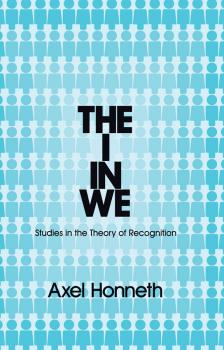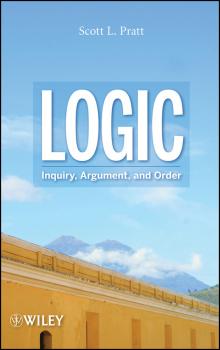ТОП просматриваемых книг сайта:
Философия
Различные книги в жанре Философия, доступные для чтения и скачиванияАннотация
Philosophy of Religion: The Basics offers a concise introduction to philosophy of religion, distilling key discussions and concepts of the subject to their succinct essence, providing a truly accessible entry into the subject. A truly accessible introduction to philosophy of religion for beginners Takes a topical approach, starting with the nature of religion and moving the reader through the major concepts, explaining how topics connect and point to one another Offers a thorough and full treatment of diverse conceptions of God, the ontological argument, and divine attributes and dilemmas A genuinely concise introduction, this text can be used alongside other resources without overtaxing students Represents 30 years of experience teaching to undergraduates Includes a free downloadable file with key excerpts and additions to help students study
Аннотация
In 1944 Horkheimer and Adorno warned that industrial society turns reason into rationalization, and Polanyi warned of the dangers of the self-regulating market, but today, argues Stiegler, this regression of reason has led to societies dominated by unreason, stupidity and madness. However, philosophy in the second half of the twentieth century abandoned the critique of political economy, and poststructuralism left its heirs helpless and disarmed in face of the reign of stupidity and an economic crisis of global proportions. New theories and concepts are required today to think through these issues. The thinkers of poststructuralism Lyotard, Deleuze, Derrida must be re-read, as must the sources of their thought, Hegel and Marx. But we must also take account of Naomi Klein's critique of Milton Friedman and the Chicago School and her account of the 'shock doctrine'. In fact, argues Stiegler, a permanent 'state of shock' has prevailed since the beginning of the industrial revolution, intensified by the creative destruction brought about by the consumerist model. The result has been a capitalism that destroys desire and reason and in which every institution is undermined, above all those institutions that are the products par excellence of the Enlightenment the education system and universities. Through a powerful critique of thinkers from Marx to Derrida, Stiegler develops new conceptual weapons to fight this destruction. He argues that schools and universities must themselves be transformed: new educational institutions must be developed both to take account of the dangers of digitization and the internet and to enable us to take advantage of the new opportunities they make available.
Аннотация
In this volume Axel Honneth deepens and develops his highly influential theory of recognition, showing how it enables us both to rethink the concept of justice and to offer a compelling account of the relationship between social reproduction and individual identity formation. Drawing on his reassessment of Hegel’s practical philosophy, Honneth argues that our conception of social justice should be redirected from a preoccupation with the principles of distributing goods to a focus on the measures for creating symmetrical relations of recognition. This theoretical reorientation has far-reaching implications for the theory of justice, as it obliges this theory to engage directly with problems concerning the organization of work and with the ideologies that stabilize relations of domination. In the final part of this volume Honneth shows how the theory of recognition provides a fruitful and illuminating way of exploring the relation between social reproduction and identity formation. Rather than seeing groups as regressive social forms that threaten the autonomy of the individual, Honneth argues that the ‘I’ is dependent on forms of social recognition embodied in groups, since neither self-respect nor self-esteem can be maintained without the supportive experience of practising shared values in the group. This important new book by one of the leading social philosophers of our time will be of great interest to students and scholars in philosophy, sociology, politics and the humanities and social sciences generally.
Аннотация
Minerva’s Night Out presents series of essays by noted philosopher and motion picture and media theorist Noël Carroll that explore issues at the intersection of philosophy, motion pictures, and popular culture. Presents a wide-ranging series of essays that reflect on philosophical issues relating to modern film and popular culture Authored by one of the best known philosophers dealing with film and popular culture Written in an accessible manner to appeal to students and scholars Coverage ranges from the philosophy of Halloween to Vertigo and the pathologies of romantic love
Аннотация
By exploring the ethical differences between humans and animals, Animalkind establishes a middle ground between egalitarianism and outright dismissal of animal rights. A thought-provoking foray into our complex and contradictory relationship with animals Advocates that we owe each animal due respect Offers readers a sensible alternative to extremism by speaking of respect and compassion for animals, not rights Balances philosophical analysis with intriguing facts and engaging tales
Аннотация
Developing Deontology consists of six new essays in ethical theory by leading contemporary moral philosophers. Each essay considers concepts prominent in the development of deontological approaches to ethics, and these essays offer an invaluable contribution to that development. Essays are contributed by Michael Smith, Philip Stratton-Lake, Ralph Wedgewood, David Owens, Peter Vallentyne, and Elizabeth Harman – all leading contemporary moral philosophers Each essay offers an original and previously unpublished contribution to the subject A significant addition to the field for anyone with an interest in the development of deontology The collection is edited by a leading philosophical scholar
Аннотация
Levinas, Subjectivity, Education explores how the philosophical writings of Emmanuel Levinas lead us to reassess education and reveals the possibilities of a radical new understanding of ethical and political responsibility. Presents an original theoretical interpretation of Emmanuel Levinas that outlines the political significance of his work for contemporary debates on education Offers a clear analysis of Levinas’s central philosophical concepts, including the place of religion in his work, demonstrating their relevance for educational theorists Examines Alain Badiou’s critique of Levinas’s work Considers the practical implications of Levinas’ theories for concrete educational practices and frameworks
Аннотация
Designed to accompany Epistemology: An Anthology or stand alone as a concise primer, this is a straightforward and accessible introduction to contemporary epistemology for those studying the topic for the first time. A step-by-step introduction to contemporary epistemology, with coverage of skepticism, epistemic justification, epistemic closure, virtue epistemology, naturalized epistemology, and more Explains the main arguments of the most influential publications from the last 50 years Contextualizes key concepts and themes, instead of treating them in isolation Straightforward and accessible for those studying the topic for the first time Designed to accompany the second edition of Epistemology: An Anthology (Wiley Blackwell, 2008), but stands on its own as a concise introduction to the key ideas and arguments in epistemology
Аннотация
An enlightening introduction to the study of logic: its history, philosophical foundations, and formal structures Logic: Inquiry, Argument, and Order is the first book of its kind to frame the study of introductory logic in terms of problems connected to wider issues of knowledge and judgment that arise in the context of racial, cultural, and religious diversity. With its accessible style and integration of philosophical inquiry and real-life concerns, this book offers a novel approach to the theory of logic and its relevance to questions of meaning and value that arise in the world around us. The book poses four problems for logic: Is logic separate from experience? Does logic require dualisms? Can logic reconcile opposed ways of understanding the world? And when things are divided, does the boundary have a logic? The author begins the exploration of these questions with a discussion of the process of analyzing and constructing arguments. Using the logical theories of C. S. Peirce, John Dewey, and Josiah Royce to frame the investigation, subsequent chapters outline the process of inquiry, the concept of communicative action, the nature of validity, categorical reasoning through the theory of the syllogism, and inductive reasoning and probability. The book concludes with a presentation of modal logic, propositional logic, and quantification. Logic is presented as emerging from the activities of inquiry and communication, allowing readers to understand even the most difficult aspects of formal logic as straightforward developments of the process of anticipating and taking action. Numerous practice problems use arguments related to issues of diversity and social theory, and the book introduces methods of proving validity that include Venn diagrams, natural deduction, and the method of tableaux. Logic: Inquiry, Argument, and Order is an ideal book for courses on philosophical methods and critical reasoning at the upper-undergraduate and graduate levels. It is also an insightful reference for anyone who would like to explore a cross-cultural approach to the topic of logic.
Ancient Greek Philosophy. From the Presocratics to the Hellenistic Philosophers - Thomas Blackson A.
Аннотация
Ancient Greek Philosophy: From the Presocratics to the Hellenistic Philosophers presents a comprehensive introduction to the philosophers and philosophical traditions that developed in ancient Greece from 585 BC to 529 AD. Provides coverage of the Presocratics through the Hellenistic philosophers Moves beyond traditional textbooks that conclude with Aristotle A uniquely balanced organization of exposition, choice excerpts and commentary, informed by classroom feedback Contextual commentary traces the development of lines of thought through the period, ideal for students new to the discipline Can be used in conjunction with the online resources found at http://tomblackson.com/Ancient/toc.html










